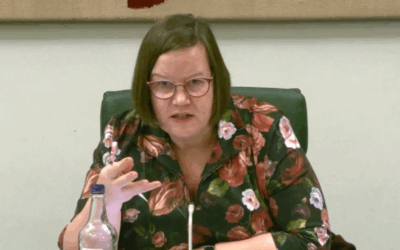As US President Donald Trump prepares to fly into the UK next week for his second state visit, big tech and tax are almost certainly on the agenda. It’s been reported that the bosses of Apple and OpenAI will join Trump’s delegation, and may even attend the state banquet that the King will host at Windsor Castle.
The context: ongoing negotiations on the detail of a UK-US ‘digital trade deal‘ to promote market access for US and UK tech companies, amidst growing US government threats to raise punitive tariffs against countries – including the UK – that levy ‘Digital Services Taxes’ (DSTs) on large online service providers.
Such threats began under the Biden Administration in 2019, but have ramped up dramatically this year. In May, with rumours that the UK government was preparing concessions on the UK DST as part of a sectoral trade deal with the US, Downing Street insisted that “[t]he Digital Services Tax remains unchanged“. Twenty-four hours later, however, the Prime Minister walked this back. Asked if he could guarantee that negotiations on a larger UK-US ‘digital trade deal’ would not mean any changes to the DST, he said: “[o]n digital services, there are ongoing discussions, obviously, on other aspects of the deal.”
This summer has seen further public calls from the US tech industry for the UK specifically to scrap its DST, which currently raises around £800m annually for the public purse from the largest online service providers. Both US and UK representatives of trade associations representing the largest US digital giants have backed US “retaliatory taxes and tariffs” against the UK if it does not comply with the US’ demands.
And in late August, an angry post by the US President on his ‘Truth Social’ website brought the issue squarely back onto the transatlantic agenda. Trump complained that:
Digital Taxes, Digital Services Legislation, and Digital Markets Regulations are all designed to harm, or discriminate against, American Technology. They also, outrageously, give a complete pass to China’s largest Tech Companies.
The US President promised “substantial additional Tariffs on that Country’s Exports to the U.S.A., and institute Export restrictions on our Highly Protected Technology and Chips” if such taxes did not “end, and end NOW!”
The debate this summer has been characterised by a series of misconceptions about how the UK DST works, why it was introduced, and who pays it. That’s why TaxWatch is today publishing a new briefing on the UK DST. It shows that three key claims about the UK DST made by the US Government and the US tech industry are incorrect:
1. The US government report whose findings first prompted the threat of tariffs against the UK claims that the UK DST was deliberately designed to apply to US companies while exempting UK businesses.
It bases these claims on statements by MPs, including Jeremy Corbyn and Margaret Hodge, who were in opposition when the tax was developed and introduced, and could not possibly have been involved in its design. We have identified at least one large UK online retail platform which also pays the UK DST.
2. The US President has claimed that DSTs exempt Chinese tech companies.
However, DSTs are based on sales revenues, and corporate reporting suggests that in Q2 2025 the Chinese social media company Bytedance outranked US companies as the world’s number 1 social media company by sales for the first time. Since major online marketplaces and content providers used by UK consumers now include those headquartered in China, Singapore or related financial centres, it is very likely that abolishing the UK DST would in part benefit Chinese and other non-US internet giants that are amongst the sector’s fastest-growing members.
3. The leading US tech industry group, whose members include all major US tech companies, published statistics in July 2025 claiming that all UK DST revenue (and that of the French, Italian and Spanish DSTs) is paid by US-headed firms.
In fact, the first ever statistics about the nationality of the corporate groups within scope of the UK DST, obtained by TaxWatch through Freedom of Information laws, show that over a quarter of those which paid a DST liability in 2023/4 (the latest year available) are not US-headquartered, and over a third now assessed as liable for the UK’s DST are not headquartered in the US either.
New revenue estimates produced for this briefing using online advertising and retail statistics suggest that – if retained – the UK DST could generate revenues of between £4.4bn and £5.2bn over the course of this parliament: a modest amount compared to overall business taxes and the revenues of large online tech companies, but equivalent (for example) to the cost of training between 108,000 and 128,000 new nurses (25-29 percent of the current NHS nurse workforce).
The full briefing is here.
Main photo by camilo jimenez on Unsplash



